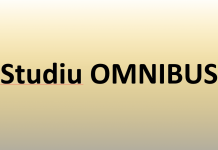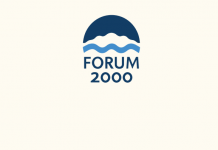The European Union is the only political actor with the credibility to find a solution to the current crisis
When a crowd of demonstrators stormed Moldova’s presidential palace and parliament building this week, many in the west struggled to understand what was happening there. Was it a new Ukraine-style "colour revolution", or a Latvia-style riot sparked by the economic crisis? The truth is it’s neither.
Putting Moldova on the political map of post-Soviet states can be puzzling. In some ways, Moldova is the most Europeanised state of them all: Moldovans speak Romanian și an official EU language și and almost three quarters of the population favour joining the EU. More than half of Moldova’s trade goes to the EU (and only 15% to Russia), while the majority of Moldovan migrant workers work in the EU.
Yet Moldova is no champion of democratic transition either. On the one hand, it has avoided the excesses of authoritarian rule that stained Armenia, Belarus, Russia and Ukraine until 2004. On the other hand, it has failed to implement genuine reforms or to democratise its political system in a sustainable way.
The reasons for this week’s demonstrations are internal. It’s possible that government agents infiltrated the crowd and instigated violence in order to discredit the protests and justify a crackdown și a common tactic of undemocratic governments. There is some video evidence of this.
But the anger was also fuelled by the breakdown in trust between the police and the general public. Thanks to its inefficiency and corruption, the police are one of the least trusted public institutions in Moldova. Now, the apparent harassment of political opponents by some policemen has discredited the entire Ministry of Interior. For many, the ministry is starting to be seen primarily as a coercive wing of the communist government, rather than as a law-enforcement agency.
Perhaps more galvanising is the prospect of seeing president Voronin as the de facto head of state for another four years. According to the Moldovan constitution, the president must step down at the end of his current, second term. However, he has announced plans to remain in politics, perhaps as speaker of parliament. In a system devoid of democratic ways of solving political crises, street protests become the only way to settle scores.
The situation in Moldova is the latest in a string of crises erupting in eastern Europe when EU officials are on holiday: see the Georgian war in August 2008 and the Ukrainian gas crisis in January 2009. And it doesn’t bode well for the European Union’s approach to its eastern neighbours. Without quick diplomatic action, the Eastern Partnership summit in early May between the EU and their six eastern neighbours will be a major embarrassment if it appears to be a meeting between EU leaders and eastern autocrats.
The EU is the only political actor with the credibility to find a solution to the current crisis. It is trusted by the government, the opposition and the general public. Its response should be two-pronged.
First, it must focus on safeguarding human rights in the days ahead, including stopping indiscriminate police violence and the arrest of peaceful protesters. It should also ensure press freedom.
Then the EU should dispatch a fact-finding mission to investigate the violence which occurred on 7 April, in order to identify culprits and possible government provocateurs. It should also ensure that the riots aren’t used as an excuse for a crackdown against all opposition parties and civil society activists.
In the medium term, though, the EU needs to work out a political deal between the government and opposition. Member states need to apply systematic political pressure. The alternative is bleak: Moldova will soon slide towards a more consolidated authoritarian political system. And that would only breed more violence and instability on the EU’s eastern flank.







